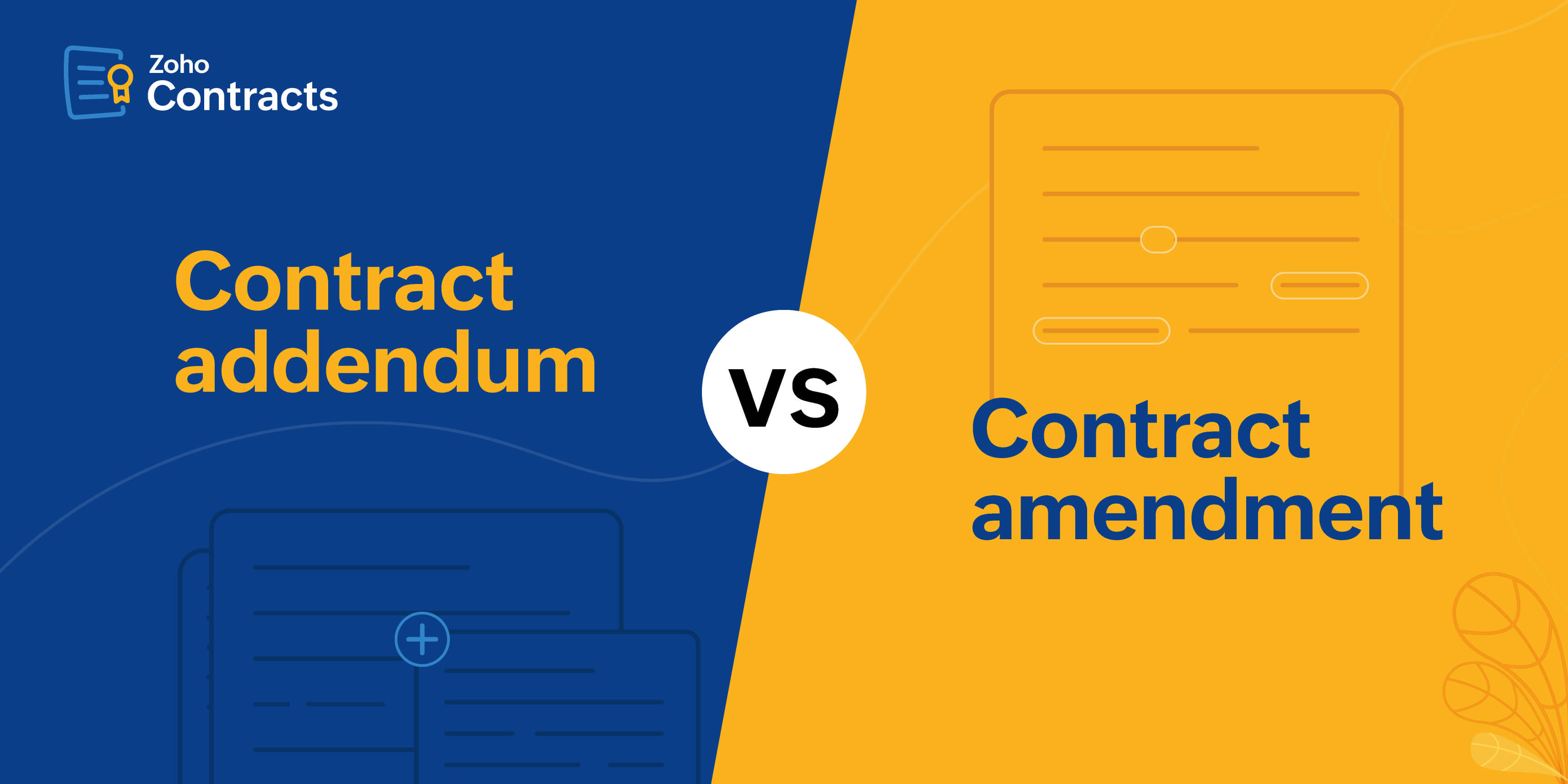- HOME
- Legal Insights
- Addendum vs. amendment: Learn the difference
Addendum vs. amendment: Learn the difference
- Last Updated : May 14, 2024
- 1.2K Views
- 3 Min Read

In today's dynamic landscape of evolving technologies, regulatory changes, and geopolitical uncertainties, contractual changes are inevitable.
Contract managers often receive requests to modify clauses, timelines, or other obligations in contracts after they're signed and active. In such cases, knowing the difference between an addendum and an amendment helps to ensure a successful change management process.
Though these terms are used interchangeably, they have distinct purposes and implications for contracts. This blog post delves into the key differences that set addenda and amendments apart, explaining when and how to use each effectively.
Addendum and amendment: Definition
What is a contract addendum?
A contract addendum is an attachment to an existing active contract, accommodating any new additions needed for the original contract. The addendum can specify changes, introduce additional terms, or clarify certain aspects explained in the contract. A contract addendum becomes legally enforceable once it’s approved and signed by all parties involved.
What is a contract amendment?
Contract amendments are changes made directly to the existing terms of an active contract. This includes alterations in clause languages, timelines, obligations, and other contractual terms. The proposed changes come into effect once all parties involved approve and sign the amended contract. This ensures that the internal stakeholders and the counterparties are aware of the changes made to a contract.
Addendum vs. amendment: Differences
Contract addendum | Contract amendment |
Extends the original contract with an attachment that includes additional information or new terms. | Modifies the existing contractual terms and conditions within the original contract. |
Addenda are executed separately from the original contract and require signatures from all parties. However, the execution steps may vary based on the context of the agreement. | The amended contracts require the exact execution process to be repeated as the original contract. |
Contract addenda are often minor additions focusing on specific aspects of the actual contract. Due to their limited scope, the potential for disputes between parties is minimal. | Contract amendments often involve major changes and corrections to the original contract. Due to their broad scope, there’s a higher potential for disputes between the parties if not negotiated and agreed upon clearly. |
Example: A company deciding to introduce a new health and wellness benefit program for its employees opts to issue a contract addendum along with the original contract. | Example: A company deciding to revisit its remote work policy in response to the COVID-19 pandemic opts to amend its existing employee contracts to establish guidelines and expectations for working remotely. |
Addendum vs. amendment: FAQs
Who can propose a contract addendum and contract amendment?
Any party involved in a contract can propose an addendum or an amendment. However, all parties must agree to the changes proposed, regardless of whether it’s an addendum or an amendment, for them to be executed and go into effect.
What are the elements of a contract addendum?
An addendum typically includes the following key elements:
Title
Parties involved
Citation of the original contract
Description of proposed changes
Effective date of addendum
Signatures
Including these elements in an addendum provides a clear and legally binding means of adjusting an existing contract. Also, when drafting an addendum, it’s essential to maintain consistency in language, formatting, and font style with the original contract for clarity.
Can an addendum be amended?
Yes, it is possible to amend an addendum to a contract. However, if all parties agree, it may be more efficient to amend the original contract directly. The process for amending a contract addendum is the same as amending a regular contract.
How does Zoho Contracts help manage contract amendments?
Zoho Contracts simplifies contract amendments with smart letter templates. It generates an amendment letter upon editing the contract, capturing all of the current changes and the entire history of the contract. This letter can be sent later for approval, negotiation, and signature cycles. This ensures that all parties are aware of the changes made to the contract.
 Heleena
HeleenaHeleena is a writer based in Chennai, India.


